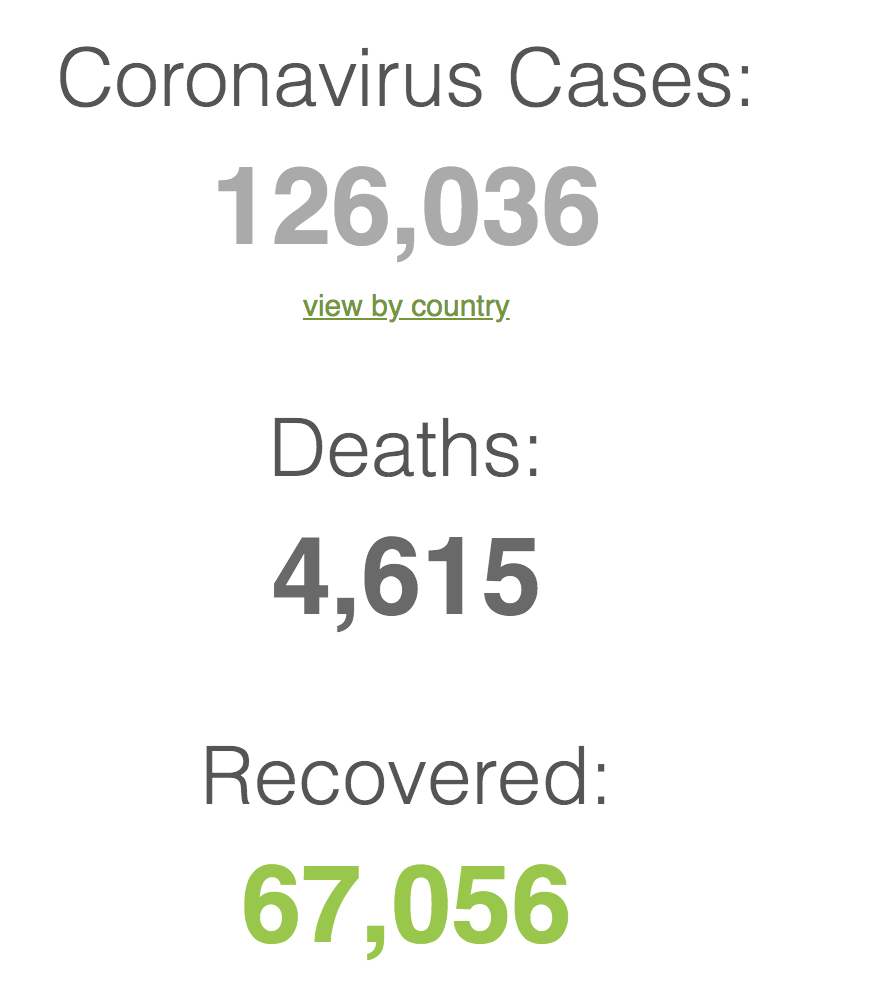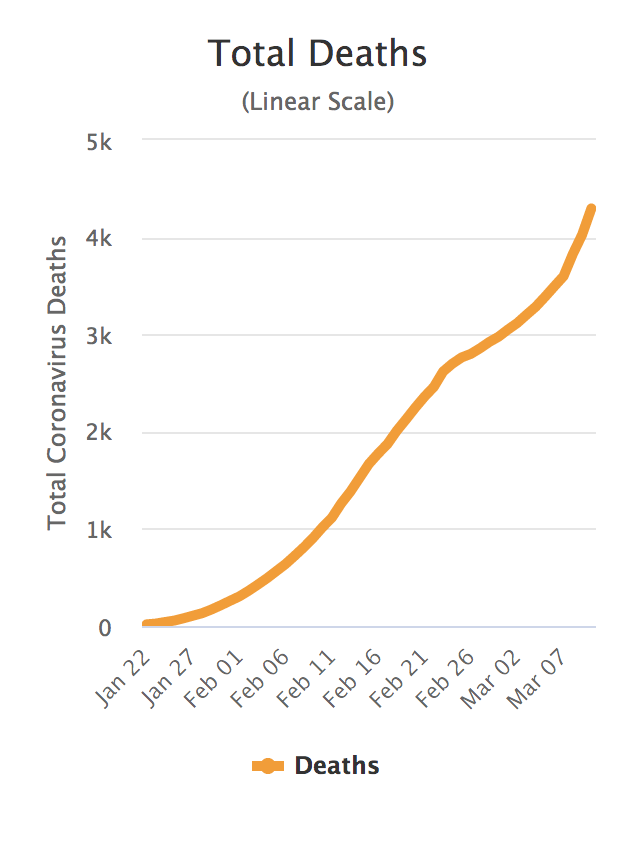How lethal is the coronavirus, compared to, say, the flu?
The only way to know a rate- any rate- is to know both the numerator (i.e., those who suffer the outcome), and the denominator (i.e., the population at risk/exposed).
As I noted in my first column about COVID-19 (or whatever we have started calling it today...), we were very unlikely to overlook deaths from the virus, but very likely to overlook mild cases.

Updated March 11, 2020; 23:02 GMT
The global epidemiologic data now suggest exactly that. Look at the just-updated tabulation of world data above (or visit https://www.worldometers.info/coronavirus/ to get it at the source), and something pretty dramatic jumps off the page from the top three rows. Namely, Italy and South Korea have total cases in much the same ballpark (~12462 in Italy, 7755 in South Korea)- but Italy has ten times as many deaths.
Does this mean the coronavirus is ten times more lethal to Italians than Koreans? ALMOST CERTAINLY NOT. There is no plausible explanation for any such discrepancy.
What it almost certainly means is that Italy actually already has ten times as many cases as they've detected.
Why the difference? Because South Korea is thus far the only country to implement a rigorous surveillance program, looking for cases in the total population. They are finding a much higher percentage of total cases than any other country.

Updated March 11, 2020; 23:02 GMT
And their data are importantly reassuring. Rather than a fatality rate above 3%, the data from South Korea suggest a fatality rate of 0.6%, one fifth as much. Compared to some of the high-end mortality statistics I've seen cited, it's an order of magnitude less. And, it puts the fatality rate of COVID-19 much closer to that of...the flu. A condition we take for granted. There are millions and millions of flu cases around the world right now, and many tens of thousands of deaths- both orders of magnitude greater than the stats attached to the coronavirus. But how many major events have been canceled, how many schools closed for flu? To the best of my knowledge, none.
I am not saying the coronavirus pandemic isn't serious; obviously, it is. But our actions reflect fear not only of getting the infection, but dying from it. The world's best data suggest that many people, perhaps even most, get the infection without even knowing they have it.
Yes, the disease can kill, clearly- and the elderly, frail, and chronically ill are at special risk. But if the South Korea data generalize, as they probably do- then the likelihood of recovery should be something like 99.4%; for flu, it is better, at 99.9%. But many more people have the flu, and are not quarantined- so they are busy spreading it around. The odds are very long indeed that the death toll from the coronavirus will come anywhere near this year's death toll from flu- which, tragically, and unlike coronavirus, includes children.
Trained in epidemiology, I always ask: what's the denominator? For coronavirus, the answer, courtesy of a robust public health system in South Korea- is a source of comfort in a time of woe.
Dr. David L. Katz is a board-certified specialist in Preventive Medicine/Public Health





Leave your comments
Post comment as a guest